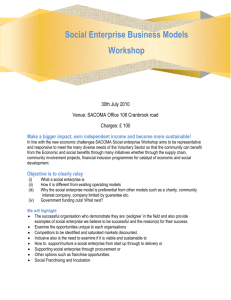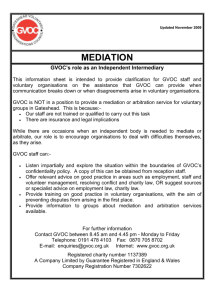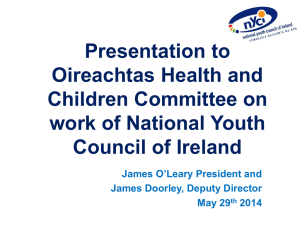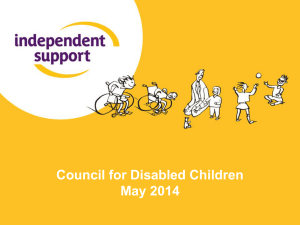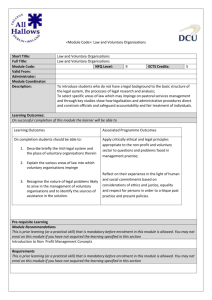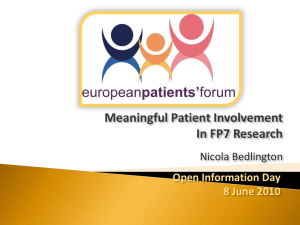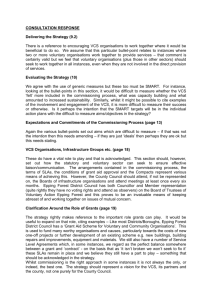Independent Support briefing - The Council for Disabled Children
advertisement
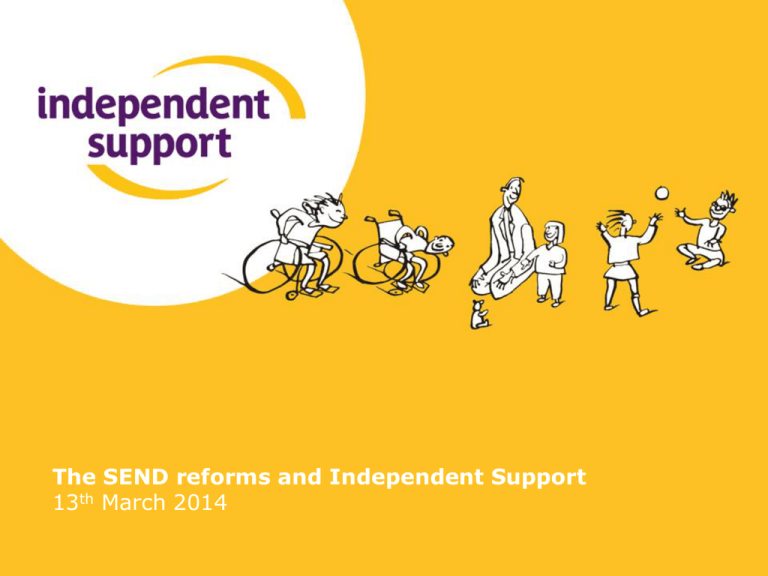
The SEND reforms and Independent Support 13th March 2014 SEND reforms The importance of taking into account the views, wishes and feelings of young people, parents and carers • A focus on outcomes and a personalised approach to support • Require the transition of statements/LDAs to EHC plans • Local offer – local support • Information, advice and support for young people and families • Co-ordination – joint commissioning • What is Independent Support? • A 2-year programme to provide additional support to young people and parents during the implementation of the SEND reforms • Independent Support is Government funded • CDC will manage the process and oversee an independent evaluation Who is it designed to support? It will provide independent supporters in each local area as an additional resource for a time limited period to work directly with young people and the parents of children being assessed for an EHC plan This will include: • New entrants to the system • Children with a statement converting to an EHC plan • Young people with an LDA converting to a plan Who might provide IS? Private, voluntary or community organisations Independent Supporters will: • • • • • Be locally recruited Have skills and expertise in working with parents and young people Have experience and understanding of SEN and disability Be based in private, voluntary and community sector organisations Complete accredited training What funding is available? • • • • Government funding of £30m over two years Funding to set up, train, deliver and monitor an evaluate IDS The majority of funds will go to voluntary community or private organisations to deliver IS Parent partnership services will also receive funding to develop capacity and support the IS programme What happens locally? Locally, the IS service will: • • • • Work in partnership with organisations including the local authority, Parent Partnership Service and local Parent Carer Forum Assess local need in consultation with local partners Complement local provision and add value Retain appropriate independence How does it fit with Key working? IS will complement existing approaches to key working IS will bring: • Additional capacity • Specific time limited resources to support transition to new assessment and plan • Training on the new legal duties IS will work alongside and be supported by Early Support How will it work with PPS? The Government recognises the key role of Parent Partnership Services in providing impartial Information Advice and Support and the need for LAs to build on them to meet new IAS duties. IS is an additional service that will work with, and complement, the PPS role. What is the timescale? Evidence and Build Phase • Testing and gathering evidence on effective models between March and June 2014 • Tender in June for a July 2014 start date Phase 1 • Main contracts to be awarded in July/August 2014 to organisations that will host IS up until 31 March 2015 • Review of working models in Phase 1 completed March 2015 Phase 2 • Based on outcomes of a review in Phase 1 – new contracts will be awarded or extended to host IS for a further year until 31 March 2016. What will governance look like? The Council for Disabled Children will: • Publish selection criteria • Invite independent organisations to be part of the selection panel for awarding contracts • Set up a working group to contribute to and inform planning • Communicate and engage with: families and young people local authorities other relevant organisations More information For more detailed queries please send an email Martin Bull to: Independentsupport@ncb.org.uk
![1[7. MINISTRY OF PRIMARY AND MASS EDUCATION] 1](http://s3.studylib.net/store/data/008790481_1-dc16bd6475807709cfe43fd7dc8fd0e5-300x300.png)
